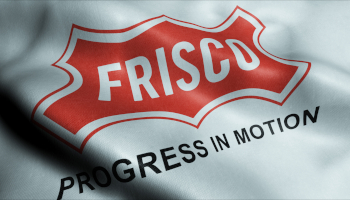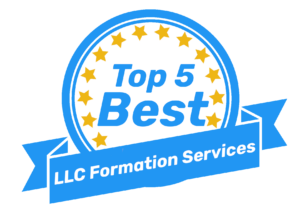We're supported by our users. We may earn a commission if you make a purchase from our links
How to Start a Business in Frisco Texas
As a part of the Dallas-Forth Worth metro area, Frisco has seen large population growth over the past decade, increasing nearly 50% since 2011. In addition, Frisco boasts a high median household income of approximately $127,000 per year. This growing, high-income population provides a great environment to start a successful business. In this guide we’ll walk you through the 12 steps you’ll need to complete to start a business in Frisco Texas.
Start your Texas Business for $0 (plus state fees)
Get Help Starting your Business from ZenBusiness
Start your Texas business with the #1 rated business formation service ZenBusiness, starting at $0 plus state fees.
ZenBusiness vs LegalZoom Comparison12 Steps Checklist to Starting a Business in Frisco Texas
- Research and Plan your Business
- Choose a Business Structure
- Create a Business Name
- Register your Business
- Obtain an EIN
- Complete Texas State Registrations
- Apply for Frisco Texas Business Licenses and Permits
- Open a Business Bank Account
- Set up Credit Card Processing
- Establish an Accounting System
- Get Business Insurance
- Hire Employees and Set Up a Payroll

1.Research and Plan your Business
Taking time to conduct market research and an analysis of the competitors in your industry are helpful when creating a business plan. The plan for your business can be brief and to the point. As long as your goals are listed in your plan it can be as short as one page. The Harvard Business Review states that a business plan increases the chances of success by 16 percent. Your plan should include what service your business provides and how it's different from competitors. It would be best if you outlined your target audience and their needs, your promotional plans, how you'll make money, and strategies for your launch.
Resource: How to Write a Successful Business Plan
2.Choose a Business Structure
When you're choosing the structure for your business, you should seek professional assistance. An advisor or attorney that specializes in business law can guide you through the steps. The legal structure of a business is influenced by raising capital, tax status, and personal liability. The most commonplace structures for a business are:
- Limited Liability Company
- Corporation
- Sole Proprietorship
- Partnership
Limited Liability Company (LLC)
Small businesses that operate LLCs have personal asset protection if the company has any issues, either financial or legal. Preferred pass-through means that the owner pays taxes on their individual income but not what the business earns or loses. There's more flexibility with an LLC for small business owners than some other business entities, making it a preferred choice.
Corporation
Corporations are owned by shareholders. The company is a different legal entity. Corporations offer protection from liability but pay higher tax rates. Corporations must pay taxes on profits before the distribution of earnings to the shareholders.
Sole Proprietorship
A sole proprietorship is an effective solution for a new business owner that wishes to simplify the process. Although a sole proprietorship doesn't have to be registered, some permits or licenses may be necessary. The downside of this form of business is that the business isn't separate from the owner's personal liability.
Partnership
General partnerships pay taxes on the income of the owners, not what the business earns. A partnership is a more informal structure than other entities, and the liability of the owners is a greater risk since it's unlimited.
For a more in-depth breakdown of each entity type to help you pick the right structure you can read this guide. In this How to Choose a Business Structure Guide you can learn the differences between formal and informal business structures along with their advantages and disadvantages.
3.Create a Business Name
Choosing a business name is an essential part of the planning phase and should be given careful consideration. Your business name is a reflection of you. When you decide on the name for your business, it can be difficult to change later, so you should take your time. Here are some considerations:
- Choose a name that's simple to search and find online
- The name of your business should be memorable
- Your name should create a unique identity
Resource: How to Name your Business Guide
4.Register your Business
Once you have decided on your business structure and have picked a business name it's time to register your business. The process to register your business will vary depending upon which structure you choose. Below is a brief explanation of the registration process for each of the 4 business types, followed by a link to a detailed how-to guide for each:
Register a Texas LLC
An LLC needs to file formation paperwork with the Texas Secretary of State known as Form 205, Certificate of Formation - Limited Liability Company. The Texas Secretary of State charges a filing fee of $300 to submit Form 205, which can be done online or by mail. You'll need to conduct a name availability search before filing the Certificate of Formation to ensure the business name you chose is available.
Resource: How to Start an LLC in Texas
Are you Considering Using an LLC Formation Service?

The Top 5 Best LLC Formation Services
We’ve reviewed the best LLC formation services and ranked the top 5. Find an LLC formation services that works best for you.
View the Top 5Best LLC Services
Register a Texas Corporation
The formation process for a Texas Corporation is similar to that of an LLC. You'll need to file Form 201, Certificate of Formation - For-Profit Corporation with the Texas Secretary of State and pay the $300 state filing fee.
Resource: How to Form a Texas Corporation
Register as Sole Proprietorship
A sole proprietorship in Texas doesn’t require any filing with the state if you choose to use your own name. However, if you want to use a business name that doesn't include your personal name, you need to register with the county clerk to get a "doing business as name" or DBA.
Resource: How to Start a Sole Proprietorship in Texas
Register a Partnership
Partnerships are quite easy because it doesn’t require any formal filings unless you don’t plan to use the partners’ surnames in the name of the business which requires you to file an Assumed Name Certificate.
Resource: How to Start a Partnership in Texas
5.Obtain an EIN
An EIN is an Employer Identification Number that the IRS uses to identify a business for tax purposes. Partnerships, corporations, and LLCs with multiple members must have an EIN. It's advisable for other business types to get an EIN since it can be used as an alternative to social security numbers.
Resource: What is an EIN and How to Apply for One
6.Complete Texas State Registrations
Besides the implications of paying federal taxes on your business, it's necessary to comply with the state regulations in Texas. The tax laws can vary depending on the type of business you operate. Usually, you'll have to pay employer and sales taxes. The Texas Workforce Commission mandates that employment taxes must be paid if you hire workers. If you sell physical products, you must pay a sales tax. In Texas, the sales tax is payable to the Comptroller of Public Accounts.
Texas State Registration Resources:
7.Apply for Frisco Texas Business Licenses and Permits
Texas doesn't require a general license for businesses. However, it's necessary to comply with local, state, and federal regulations. Business permits or licenses may be a requirement, depending on the business you own and the county you live in. The Business Permit Office of the Texas Department of Economic Development and Tourism can provide the information you need. Documentation that you may need for your Frisco Texas business license includes signage or building permits.
- Federal Business Licenses and Permits
- State of Texas Business Licenses and Permits
- Frisco Texas Business Licenses and Permits
8.Open a Business Bank Account
Keeping track of business and personal expenses is a necessity, so you must have a separate bank account for your business. Accounting and bookkeeping are less complex when you keep business and personal assets separate. If your business is an LLC or a corporation, you could lose the liability status. If someone ever files a lawsuit against you, personal and business assets could be a target if they aren't kept in separate accounts.
Resource: Guide to Opening a Business Checking Account
9.Set up Credit Card Processing
Businesses in Frisco Texas usually accept a variety of credit cards as a form of payment from their customers. About 60% of transactions over $10 are paid by using credit cards. Set up credit card processing for your business to ensure you offer your customers the option.
If you have a brick-and-mortar store, you can use a simple card reader during the checkout process. It’s affordable, easy to use, and a simple process. You can also choose a point of sale transaction (POS) system that is an integrated computerized network. A POS provides inventory management, credit card processing, and transactions.
Online retail and eCommerce stores can set up accepting credit cards through the website builder such as BigCommerce, Shopify, and WordPress.
Resource: How to Accept Credit Card Payments
10.Establish an Accounting System
An accounting system is a necessity for any successful business. It would help if you had a plan to track expenses and determine the success of your business. An accounting system generates a report of your finances, assists in creating budgets, and helps you with managing your cash flow.
Resrouce: Small Business Accounting 101 Guide
11.Get Business Insurance
One aspect of owning a business that many people overlook is taking out business insurance. Good insurance coverage minimizes your risk if you're ever involved in a lawsuit, in the event of an accident on your property, or when there's a natural disaster. Types of small business insurance include:
- Business owner's policy
- Commercial property
- General liability
- Home-based business
- Product liability
- Professional liability
Most small business insurance covers injuries that occur on the property, damage to the property, and lawsuits against the business. The insurance policy you take for your business may depend on the environment and type of business you own. An excellent rule to follow is to take out an insurance plan that covers any losses that you couldn't afford to pay out-of-pocket in the event of an emergency.
12.Hire Employees and Set Up a Payroll
Before hiring any employees, it's helpful to clarify the job description so new employees understand what's expected of them. Take time to review the candidate's credentials and job qualifications.
An accounting system ensures you keep track of your income and expenses. It can also allow you to keep an eye on your business performance and make projections for the future. Your accounting system gives you control of your cash flow and enables you to create budgets and financial reports.

